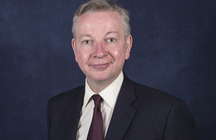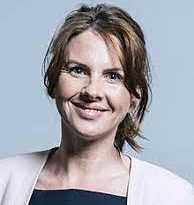Michael Gove – 2020 Statement on the UK’s Future Relationship with the EU
Below is the text of the statement made by Michael Gove, the Chancellor of the Duchy of Lancaster and Minister for the Cabinet Office, in the House of Commons on 8 June 2020.
The Government have made a commitment to update Parliament on the progress of our future relationship negotiations with the EU. This statement provides an update on the fourth round of negotiations.
Negotiators from the UK and the EU held discussions through video conferencing on 2-5 June 2020 for the fourth round of negotiations on the UK-EU future relationship. This round was shorter than usual owing to a Belgian public holiday. There was no opening plenary, but there were substantive discussions on many issues, and the week closed with a plenary on 5 June chaired by the UK’s Chief Negotiator, David Frost, and by the European Commission’s Chief Negotiator, Michel Barnier.
Discussions covered all work streams including:
Trade in Goods—Market access, trade remedies, customs and SPS.
Trade in services—International maritime transport services, temporary entry for business purposes, professional qualifications, small and medium-sized enterprises, geographical indications (GIs).
Fisheries—Objectives of the agreement, consultation and co-operation procedures, access and scope, and quota sharing.
Transport—Aviation governance.
Energy—Civil nuclear, gas and electricity trading, climate change and carbon pricing.
Mobility and social security co-ordination – Social security co-ordination arrangements.
Law Enforcement and Criminal Justice—Human rights, extradition, the exchange of passenger name records (PNR) information, and Europol.
Thematic co-operation – A possible security of information agreement, asylum and illegal migration including unaccompanied asylum-seeking children.
Participation in union programmes—Discussions on the potential terms for UK participation in the following programmes Horizon Europe, Euratom, R and D, Copernicus and Erasmus+, and discussions on potential co-operation on the European geostationary navigation overlay service and EU space surveillance and tracking programmes.
“Level playing field”—In particular, labour and environmental standards, and trade and sustainable development.
Horizontal issues—Governance arrangements, territorial scope.
Discussions were constructive and positive in tone, but there was no movement on the most difficult areas where differences of principle are at their most acute—notably fisheries, governance arrangements, and the so-called “level playing field”. Chief negotiators are discussing the arrangements for the next rounds of negotiation and for the high level meeting required by the political declaration to take place in June.


